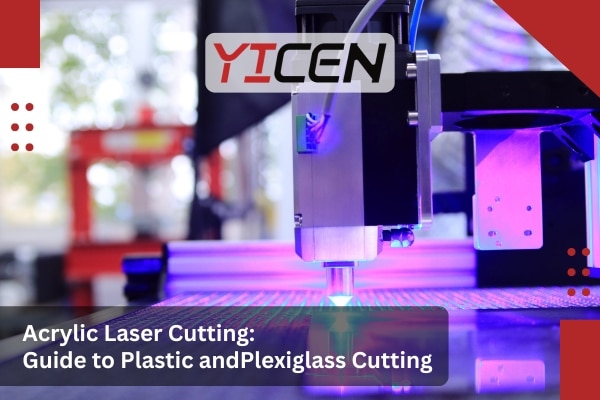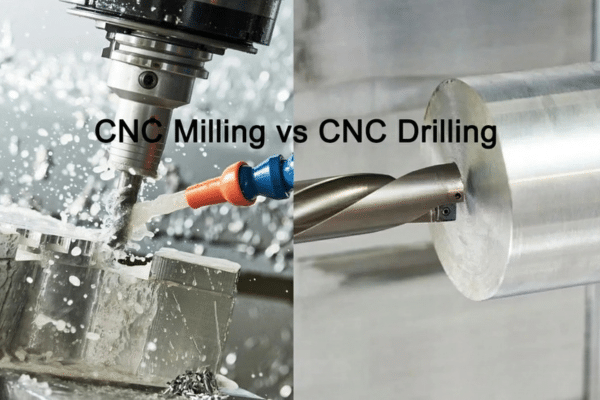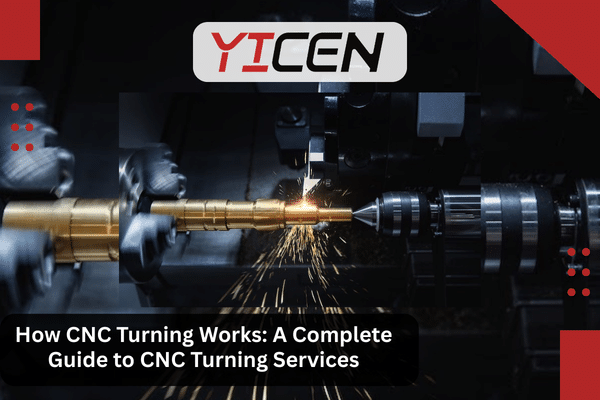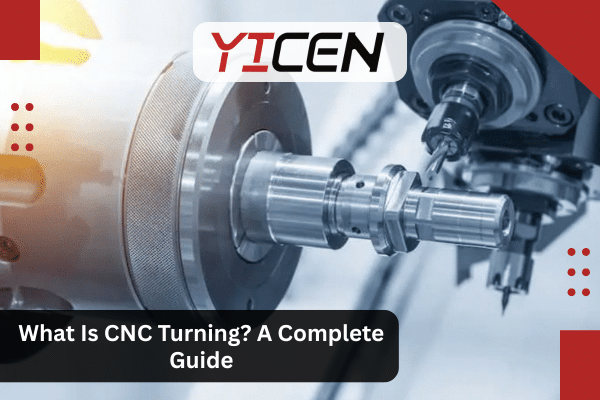Businesses across manufacturing sectors depend on acrylic laser cutting services for creating precise components. These specialized cutting services deliver custom shapes at competitive pricing while surpassing traditional methods in precision.
The global acrylic laser cutting machine market reached $1.3 billion in 2023 and expects to reach $2.6 billion by 2030, demonstrating strong industry growth at 10.6% annually.
What Is Acrylic and Why Is It Used in Laser Cutting
Acrylic material contains polymethyl methacrylate (PMMA), which people recognize as plastic or plexiglass. Manufacturers select this sheet material because it provides exceptional optical clarity and superior strength-to-weight ratio. Acrylic delivers about 10 times more resistance to impact than standard glass.
Cast acrylic delivers superior transparency with smoother surface finishes. Extruded versions provide better dimensional stability at lower costs. Cast acrylic works well for premium displays, whereas extruded handles general manufacturing applications.
Yicen Precision offers acrylic laser cutting Service across different material thickness ranges. Proper material selection determines optimal cutting outcomes for each project.
What Is Acrylic Laser Cutting and How Does It Work
Acrylic laser cutting service uses focused laser beam technology to cut acrylic materials with extreme precision. The computer numerical control system directs the beam path exactly where needed. Concentrated energy melts or vaporizes material along predetermined cutting lines.
Laser cutting allows users to create complex cuts, engraving, or marks in acrylic using a laser beam within a CNC based system. This cutting process creates clean edges without applying mechanical stress to sheet materials.
Acrylic Thickness Capabilities
| Thickness Range | Application Type | Cutting Quality |
| 2-10mm | Signage and displays | Excellent edges |
| 10-25mm | Protective panels | Good precision |
| 25-50mm | Industrial parts | Standard quality |
Laser engraving creates surface markings without penetrating completely through materials. This technique adds decorative elements or logo marks to finished pieces.
What Laser Machines Are Best for Cutting Acrylic
CO₂ laser cutter systems deliver optimal results for acrylic cutting applications. These state-of-the-art laser cutters produce wavelengths that acrylic materials absorb efficiently. CO₂ technology ensures smooth edge finishes on most projects.
Fiber lasers excel at metal cutting but struggle with transparent plastic materials. Diode lasers lack sufficient power for cutting thicker acrylic sheet effectively. CO₂ systems remain the ideal choice for acrylic laser cutting service operations.
All laser products manufactured after August 1976 must comply with FDA regulations under 21 CFR Part 1040, known as the Federal Laser Product Performance Standard. ANSI Z136.1 standards provide comprehensive guidance for safe use of lasers in manufacturing environments.
Yicen Precision operates high-quality laser cutter equipment that delivers consistent results. Advanced air assist systems prevent material overheating during the cutting process.
What Are the Advantages and Disadvantages of Acrylic Laser Cutting
Advantages of Acrylic Laser Cutting
Custom laser cutting service provides several benefits over conventional cutting methods:
- Precision: Achieves tolerance as tight as 1/64″ with masking material in place
- Speed: Faster production runs compared to mechanical cutting approaches
- Flexibility: Creates intricate designs without requiring tooling changes
- Clean edges: Produces polish finish that eliminates secondary operations
- No contact: Prevents material distortion during cutting process
Potential Limitations
Some considerations exist for acrylic cutting applications:
- Material thickness: Works within specific ranges for optimal results
- Heat affected zones: Requires proper parameter settings for highest quality
- Initial investment: Higher equipment costs than traditional methods
Benefits typically outweigh limitations for most manufacturing applications.
How to Optimize Laser Settings for Acrylic Cutting
Laser cutting and engraving services require precise parameter control for achieving optimal results. Power settings must match material thickness requirements. Cutting speed directly affects edge quality outcomes.
| Material Thickness | Power Setting | Speed Range |
| 3mm acrylic | 60-70% | 15-25 mm/s |
| 6mm acrylic | 80-90% | 8-15 mm/s |
| 12mm acrylic | 95-100% | 3-8 mm/s |
Air assist prevents flame polishing while removing debris effectively during cutting. Proper focus positioning ensures consistent cutting quality throughout entire production runs. OSHA guidelines recommend proper safety interlocks and ventilation systems to reduce noxious fumes to levels below permissible exposure limits during laser cutting operations.
What Are the Applications of Acrylic Laser Cutting
Industries utilize acrylic laser cutting for diverse manufacturing applications. Signage companies create custom displays and architectural elements for clients. Electronics manufacturers produce equipment enclosures and protective covers.
The automotive sector commonly uses laser cut custom parts and components, while advertising companies enhance their displays with attractive and durable acrylic products.
Common applications include:
- Signage and promotional displays for retail environments
- Custom shapes for store fixtures and displays
- Prototype development and product testing phases
- Mirrored acrylic decorative elements for interior design
- Clear acrylic protective barriers with weather resistance
Yicen Precision serves multiple industries with custom laser cut acrylic solutions. Quick lead time supports clients with urgent project deadlines.
What Finishing Techniques Can Be Used After Acrylic Laser Cutting
Polish treatments enhance edge appearance after cutting operations finish. Flame polishing creates crystal-clear edges on thicker materials. Mechanical polishing removes minor surface imperfections from laser-cut parts.
Acrylic colors include transparent, black, white, red, blue, green, and yellow options in a variety of colors. Mirrored acrylic provides reflective surfaces for specialized design applications. Various opaque levels suit different project requirements.
Edge treatments depend on specific application requirements and aesthetic preferences. Discussing finishing options during project planning ensures optimal final results.
What Are the Alternatives to Acrylic Laser Cutting
CNC machining offers advantages for complex three-dimensional shapes and geometries. Laser cutting provides superior edge quality for two-dimensional parts and components. Waterjet cutting handles thicker materials effectively when laser cutting reaches limits.
Traditional cutting methods include band saws and routers for basic shape cutting. These approaches lack the precision and flexibility of custom laser cutting service solutions.
Yicen Precision offers comprehensive manufacturing services beyond laser cutting capabilities. Clients access multiple fabrication methods under one roof for complete project solutions.
Conclusion
Acrylic laser cutting services provide unmatched precision for custom manufacturing requirements. Advanced technology ensures consistent quality across production runs of any size. Competitive pricing makes laser cutting accessible for various project scales.
The laser cutting machine market expects continued growth, reaching $8.72 billion by 2029, driven by technological advancements and increasing demand for precision manufacturing solutions.
Yicen Precision delivers expert acrylic laser cutting service with fast lead time for all projects. Experienced engineers provide technical support throughout project development. Contact our team for instant pricing on your next acrylic cutting project requirements.
Frequently Asked Questions
How thick can a laser cut acrylic?
Most systems handle materials up to 50mm thickness effectively. Cutting quality decreases with extreme thicknesses beyond standard ranges.
Is all acrylic available to laser cut?
Nearly all acrylic types work well with laser cutting processes. Some specialized formulations may require parameter adjustments for optimal results.
Do I leave the paper film on acrylic when cutting?
Keeping protective film during cutting prevents surface damage in most cases. Specific applications may require film removal before processing.
How do I prepare design files for acrylic laser cutting?
Vector formats like DXF, AI, or DWG work best for cutting operations. Upload your CAD files with closed paths for proper cutting operations.
What design software is best for acrylic laser cutting?
AutoCAD, Adobe Illustrator, and CorelDRAW provide excellent vector CAD design capabilities. Most software exports compatible file format options for laser cutting.
Citations:
- Occupational Safety and Health Administration. (2025). Laser Hazards – Standards. U.S. Department of Labor. Retrieved from: https://www.osha.gov/laser-hazards/standards
- U.S. Food and Drug Administration. (2024). 21 CFR Part 1040 – Performance Standards for Light-Emitting Products. Electronic Code of Federal Regulations. Retrieved from: https://www.ecfr.gov/current/title-21/chapter-I/subchapter-J/part-1040
- American National Standards Institute. (2022). ANSI Z136.1-2022: Safe Use of Lasers. The Laser Institute of America. Retrieved from: https://webstore.ansi.org/standards/lia/ansiz1362022
- Verified Market Reports. (2024). Acrylic Laser Cutting Machine Market Size and Growth Analysis. Retrieved from: https://www.verifiedmarketreports.com/product/acrylic-laser-cutting-machine-market/
- Global Market Insights Inc. (2024). Laser Cutting Machines Market Analysis Report. Retrieved from: https://www.gminsights.com/industry-analysis/laser-cutting-machines-market







